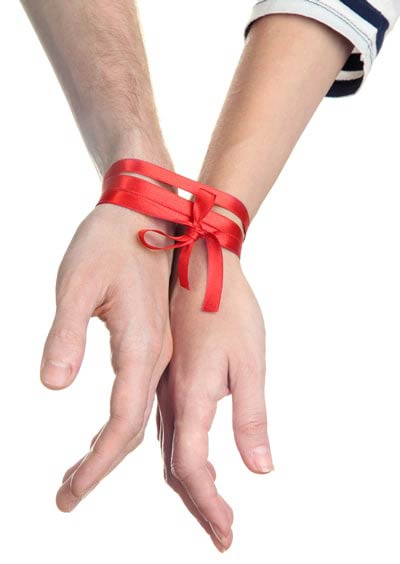Codependency Treatment
If you’re experiencing codependency you may struggle with the following:
- Experiencing appropriate levels of self-esteem. This can bounce from feeling like you’re “better than” other people and being arrogant, to “less than” others or the “worst of the worst.” Regardless of the image you show others, you probably feel lots of shame and inadequacy. You rarely feel “good enough.”
- Wanting others to like you: Opinions really matter to you, and you’ll go out of your way to be liked. People pleasing becomes a focus and they often absorb others’ thoughts and feelings.

- Setting appropriate boundaries. If you’re struggling with codependency, boundaries are likely to be an issue for you. You may have no boundaries and struggle with saying no. Or, maybe you have complex walls put up to protect yourself. These walls make look like anger, fear, mean words, or silence, and they are meant to push people away.
- Being taken advantage of: Unfortunately, this is a common problem amongst codependents. They want to be loved, so they often go to great lengths to please others, even if it causes problems for them.
- Owning your personal reality. Understanding your reality means being aware of your body, thoughts, emotions, and behavior. You may feel like you need to make up an identity or look to others on how you “should act.” This can contribute to dishonest communication in relationships.
- Taking care of your own needs and wants. You feel a sense of shame regarding telling others what you need because of the reactions you’ve gotten in the past. You feel selfish even asking for help even if you legitimately need it. So, you become needless and wantless. Or, you may expect others to take care of all your needs. But, you don’t actually tell them what you need, you just expect them to know.
- You have mood swings: You’re usually “just fine” until the rage hits. Or you’re totally involved, then completely detached. You think in terms of black or white, there is rarely any grey area. You’re not exactly sure what to think so you either underreact or overreact. Furthermore, if other’s don’t agree with you completely then you think they’re against you and out to hurt you.
Your Relationships Are Full of Struggles and Drama
If you have codependent thoughts and behaviors you are probably very concerned with the needs of other people. In fact, you routinely place other people’s needs above your own. And, you often let them dictate how you think, behave, and feel. If this sounds like you, consider checking out this checklist to determine if you are behaving in a codependent way.

Also, you may feel the need to control those close to you. You want them to act and behave in certain ways so they don’t get upset or resort to making poor choices. In fact, you might use people-pleasing and care-taking to control and manipulate people.
Maybe you’ve been in relationships with partners who are very controlling, demanding, self-centered, verbally abusive, or addicted to substances. Your relationships are very unbalanced and lopsided. However, despite how upsetting and difficult they can be, you have a very tough time ending those relationships. And you rarely prioritize your own needs in a relationship.
You’re Tired of Codependency Controlling Your Life and Relationships
This can be an exhausting way to live. You think that if the other person would just _____ (get sober, be happy, finally see all that you do for them, change, etc) then everything would be ok. Sadly, this is not true. Ultimately, your happiness does not rely on them doing anything.
The answer to your struggles is to understand that your are only responsible for your own life. You can only focus on changing what you have control of (ourselves). So, you have to give up trying to make others okay at our own expense. This is difficult to do. However, it is very attainable with codependency treatment and the support of a therapist.
Codependency Treatment Will Help You Recognize Your Value Because, You’re Special and YOU MATTER!
Codependency treatment can help people understand why they give too much, fulfill everyone’s needs but their own, or put themselves last. Codependency treatment can help you identify your codependent tendencies, understand why you do what you do, and develop self-compassion. This will help you heal and change old and destructive patterns. You can learn new tools that will shift your relationships towards healthy patterns. Begin counseling in-person or online in the state of California to overcome codependency.
Common Questions and Concerns About Codependency Treatment:
What if my partner never gets help?
There is much healing that can be done in individual work. In fact, many relationships can make dramatic shifts when one person gets help. If your partner does want to come in, we can certainly do couples counseling and address codependent tendencies. The truth is though, that whether you are with this partner or not, it is your behaviors that need to be accessed, your happiness that needs attention, and your self-care that needs improvement.
I’m worried that codependency treatment will make me a selfish person?
There is a difference between care-taking and caregiving. Care-taking is a characteristic of codependency and is deep-seated in insecurity and a need to be in control. Caregiving is an expression of kindness and love. When you care take you often are doing for others what they could do for themselves. You do this out of a need to be needed. Maybe, you think you know what’s best for others, and if they would only listen to you, they would be better off. Caregiving is giving from a full place. When you care give, you wait to be asked for help or advice. You empathize with the other’s emotions and let them figure out how they will handle their problems.
Begin Codependency Treatment in the Sacramento Area or Online in California:
If you are ready to break free from codependency and strop putting everyone’s needs before yours, then codependency treatment can help. The Relationship Therapy Center in Fair Oaks, CA or Roseville, CA and online in California can help you learn to advocate for your best interest. To begin codependency treatment in the Sacramento Area, follow these steps:
- Contact the Relationship Therapy Center to schedule your free 15-minute phone consultation to learn more about codependency treatment.
- Meet with one of our compassionate therapists.
- Begin codependency treatment and recognize YOUR worth!

Other Services offered at The Relationship Therapy Center in California:
In addition to codependency treatment, Our Sacramento area counseling clinics located in Roseville and Fair Oaks, CA are pleased to offer a variety of mental health services. Our couples services include: Counseling after infidelity, sex therapy, co-parent counseling, family therapy, divorce counseling, intensive couples retreats, and premarital counseling. Our individual therapy services include, therapy for children, teen therapy, depression treatment, and individual relationship counseling. Our therapists offer online counseling in California to treat a variety of mental health concerns. Please reach out to our Sacramento area therapy office to learn more about the many ways we can help you or your loved ones heal and grow.
Reach out to start your healing journey today
